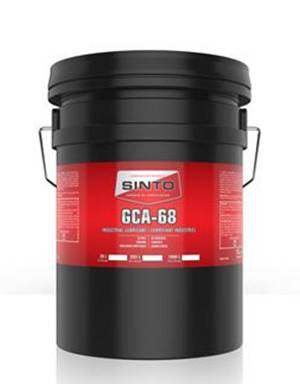ធ្នូ . 21, 2024 19:58 Back to list
hdpe gas pipe
Understanding HDPE Gas Pipes Properties, Applications, and Benefits
High-Density Polyethylene (HDPE) gas pipes have gained considerable popularity in the infrastructure and utilities sector, particularly in natural gas distribution. Their rise can be attributed to several factors including durability, flexibility, and cost-effectiveness, making them an ideal choice for transporting gas over various distances.
Properties of HDPE Gas Pipes
HDPE is a thermoplastic made from petroleum, characterized by a high strength-to-density ratio. One of the most significant properties of HDPE gas pipes is their remarkable resistance to corrosion, which ensures longevity even when exposed to harsh environmental conditions. Unlike traditional metal pipes, HDPE pipes do not suffer from rust, thus minimizing maintenance and replacement costs.
Moreover, HDPE pipes are lightweight, making them easier to handle and install. The flexibility of HDPE allows it to be installed in various configurations, adapting well to different terrain types. This adaptability reduces the need for joint fittings, which are potential points of leaks. Additionally, HDPE gas pipes exhibit excellent impact resistance, which enhances their ability to withstand external pressures and vibrations.
Applications of HDPE Gas Pipes
HDPE gas pipes are primarily used for conveying natural gas, but their applications extend beyond just gas transport. They are employed in various sectors including telecommunications, water supply systems, and wastewater management. In gas distribution networks, they serve as a crucial part of the pipeline infrastructure, facilitating the safe and efficient transport of gas from production sites to consumers.
The installation of HDPE gas pipes can often be achieved through trenchless technology, which minimizes the need for extensive excavation. This technique not only reduces construction time but also lessens the environmental impact associated with traditional digging methods. Consequently, HDPE pipes are increasingly being utilized in urban and suburban environments where excavation could lead to disruption.
hdpe gas pipe

Benefits of Using HDPE Gas Pipes
One of the primary benefits of HDPE gas pipes is their environmental advantage. The manufacturing process of HDPE generates lower emissions compared to traditional piping materials. Additionally, their long lifespan—often exceeding 50 years—means they contribute less to waste and require fewer replacements over time.
Another significant advantage is their safety. High-density polyethylene is inherently non-toxic and does not leach harmful chemicals into the natural gas it transports. This feature safeguards public health and ensures compliance with environmental regulations. Moreover, the flexibility of HDPE allows it to bend and adapt to ground movements, reducing the risk of cracks and leaks that can occur in more rigid piping systems.
HDPE gas pipes are also cost-effective. Although the initial installation cost may be competitive with traditional materials, the long-term savings in maintenance and replacement due to their durability can lead to significantly lower overall lifecycle costs. Additionally, their resistance to corrosion and external stresses means fewer emergency repairs, which can be particularly costly in gas distribution systems.
Conclusion
HDPE gas pipes represent a modern, efficient solution for natural gas distribution, combining strength, flexibility, and environmental responsibility. Their properties make them suitable for various applications beyond gas transport, and they offer added safety and cost-efficiency compared to traditional materials. As industries continue to evolve and demand more sustainable practices, HDPE pipes are likely to play an increasingly vital role in infrastructure development.
Whether for residential, commercial, or industrial gas distribution, the benefits of HDPE gas pipes are clear. Their ease of installation, low maintenance needs, and overall performance make them an excellent choice for utility companies looking to enhance their service efficiency while minimizing their environmental footprint. As we move towards a greener future, the adoption of innovative materials like HDPE will be crucial in meeting the demand for safe and reliable energy sources.
-
Premium Glossy PP Rigid Sheet – Durable & Versatile
NewsAug.07,2025
-
High-Quality HDPE Sheet | Durable Plastic Panels
NewsAug.06,2025
-
High-Precision PVC Rigid Sheets for Vacuum Forming | AI-Optimized
NewsAug.05,2025
-
Durable PVC-M Water Supply Pipes | 60-Year Life
NewsAug.04,2025
-
Premium HDPE Water Supply Pipes: Durable & Leak-Proof
NewsAug.03,2025
-
Premium PVC-M Water Supply Pipe - Durable & Efficient
NewsAug.02,2025

